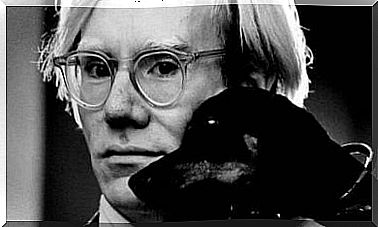What Does The Term Populism Mean?

The term “populism” is becoming more and more popular. In a way, some see it as a synonym for demagoguery. It is unconditionally applied to governments, political regimes, forms of government, personalities or economic policies.
In fact, this is an expression you may hear regularly, and always in a derogatory way. However, this word has not always been a common instrument in media and political discussions. Before, it was a simple academic expression with lots of nuances.
In this article, we study the origins and perspectives of populism. In addition, we examine the key features of Latin American populism.
The perspectives of a populist government
It is very difficult to give this term a systematic definition. However, we can take three perspectives into account.
- Populism as an ideology. This ideology divides society into two antagonistic groups. Firstly, the people who are pure and true, and secondly the elite who are corrupt. Under this concept of populism one can understand the reasons why some individuals use this term to define such different policies.
- Populism as a discursive style. From this perspective, populism is a discursive style. Basically, it sees politics as an ethic and morality between the people and the oligarchy. The language used by those who claim to speak on behalf of the people: “We” (the people) and “they” (the elite).
- Populism as a political strategy. This is the most common perspective of all. According to this view, populism is the application of certain economic policies. Eg. redistribution of assets or nationalization of companies. Moreover, populism is also a state of political organization in which a leader exercises power with the support of their followers. It usually belongs to marginalized sectors.

Where does this term come from?
As mentioned earlier, before this term became so popular, it had an academic use. The first time anyone used it was in the late 1800s, to name a phase of the development of the socialist movement in Russia.
This term was used to describe the anti-intellectual wave, which refers to a belief that socialist militants had to learn from the people before they could be their guides.
A few years later , Russian Marxists began to use the term in a derogatory sense. They used it when referring to the socialists who believed that the most important issues in the revolution were the peasants and that they could build rural municipalities from a future socialist society.
In addition, the international socialist movement began to use “populism” to refer to a movement that was against the upper classes. Unlike Marxism, however, it was nationalistic and identified with the peasantry.
On the other hand, and with no apparent connection to the Russian term, the Americans began to use it when referring to the fleeting People’s Party, which emerged mainly supported by poor farmers with anti-elitist and progressive ideas. Thus, you can see that in both cases the term denotes a rural movement with anti-intellectual tendencies.
Nevertheless, other academics in the 1960s and 1970s resumed the term in a different sense. They used it to name a number of third world reform movements (such as Peronism in Argentina, Varguisme in Brazil, and Cardinism in Mexico).
The characteristic feature here was the type of leadership. It was personal rather than institutional, individual rather than pluralistic and emotional rather than rational.
This is how the academic world went from using the term “populism” to defining peasant movements to using it to denote a broad ideological and political phenomenon. In the 1970s, people regarded any movement that threatened democracy with a negative connotation as “populism”.

Populism in Latin America
Its inclusive nature is the most important recognizable feature of Latin American populism. Three elements in particular define this property:
- Popular sovereignty. After the United States and Haiti, Latin America was the first area of decolonization. The idea of a nation arose, which brought about the building of national societies where before there were colonies led by white elites. Basically, Latin American populism was built on an original idea of popular sovereignty.
- The weakness of the state. A historical weakness that has hindered the fulfillment of populist promises and their materialization in rights. Populist cycles are gathering in view of the promises of violated rights.
- The populist reaction. Latin American populism appears as a reaction to the limitations of the systems that precede them; this is in terms of inequality, instability and political volatility. Thus, the promise of populism has a material and symbolic foundation which pretends to give a voice and a voice to the displaced.
In short, populism went from being a recognition of ignorance and the need to learn from those who intend to govern, to a political movement that seeks to gain people’s sympathy with its proposals, whether this is practical for them or not .









